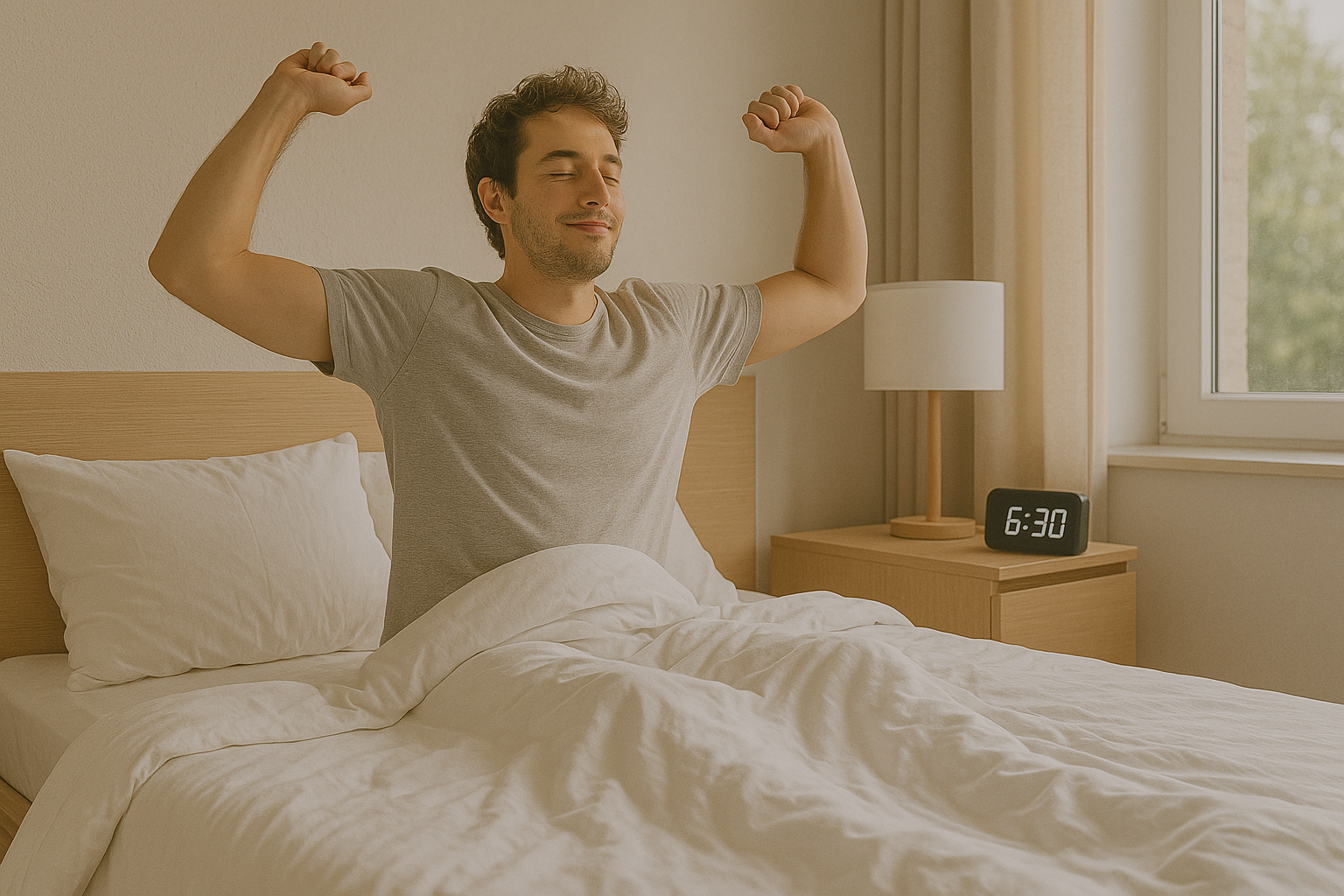If you’ve ever woken up feeling more tired than when you went to bed, you’re not alone. In today’s busy world, many people struggle with poor sleep and low energy levels. But sleep isn’t a luxury—it’s a vital part of your health, mood, and productivity.
The good news? A few simple habits can transform the way you sleep—and how you feel in the morning. Let’s explore how to improve sleep quality and wake up ready to take on the day.
1. Why Good Sleep Is Essential for Energy and Health
Sleep affects nearly every system in the body. When you sleep well, your body:
- Repairs cells and tissues
- Balances hormones
- Strengthens your immune system
- Processes emotions
- Boosts memory and focus
On the other hand, poor sleep leads to:
- Fatigue and low motivation
- Difficulty concentrating
- Weakened immunity
- Weight gain and hormone imbalance
- Increased risk of anxiety and depression
So, if you want more energy during the day, it starts with better rest at night.
2. Create a Consistent Sleep Schedule
Your body has a natural rhythm, called the circadian rhythm, that regulates sleep and wake cycles. When you go to bed and wake up at the same time each day (even on weekends), you help stabilize this rhythm.
Tips:
- Choose a bedtime that allows for 7–9 hours of sleep
- Set a wake-up time and stick to it
- Avoid hitting the snooze button
- Expose yourself to sunlight in the morning—it resets your internal clock
Consistency helps your body know when to rest—and when to rise.
3. Develop a Relaxing Nighttime Routine
Your brain needs time to slow down after a busy day. A calming pre-sleep routine signals to your body that it’s time to rest.
Try:
- Turning off screens 60 minutes before bed
- Dimming the lights
- Taking a warm shower
- Reading a physical book
- Doing gentle stretches or breathing exercises
- Listening to soft music or a sleep meditation
A peaceful routine helps you fall asleep faster and sleep deeper.
4. Optimize Your Sleep Environment
Your bedroom should be a place that invites relaxation and supports uninterrupted rest.
Make your sleep space:
- Cool: around 18–21°C (64–70°F)
- Dark: use blackout curtains or a sleep mask
- Quiet: try earplugs or white noise
- Comfortable: invest in a quality mattress and pillows
- Screen-free: avoid phones, laptops, and TVs in bed
Your environment plays a huge role in the quality of your sleep.
5. Watch What You Eat and Drink
What you consume during the day—and especially before bed—can affect how well you sleep.
Avoid:
- Caffeine in the afternoon or evening
- Heavy or spicy meals late at night
- Excessive alcohol (it disrupts sleep cycles)
- Drinking too much water right before bed (to avoid waking up)
Instead, try:
- A light evening snack with magnesium or tryptophan (e.g., banana, yogurt, oats)
- Herbal teas like chamomile or lavender
- Staying hydrated throughout the day (not just at night)
6. Get Moving During the Day
Regular physical activity supports better sleep and boosts daytime energy.
Aim for:
- At least 30 minutes of moderate exercise most days
- Morning or afternoon workouts (avoid intense activity too close to bedtime)
- Stretching or light yoga in the evening
Exercise helps regulate your body clock, reduces stress, and promotes deeper sleep.
7. Manage Stress and Mental Clutter
Racing thoughts and emotional tension are common causes of insomnia. Managing stress during the day makes it easier to rest at night.
Try:
- Journaling before bed to release worries
- Practicing gratitude
- Deep breathing or mindfulness
- Keeping a notepad near your bed for late-night thoughts
When your mind is calm, your body follows.
8. Use Technology Wisely
Technology can either help or hurt your sleep.
Avoid:
- Blue light from screens late at night
- Doomscrolling in bed
- Watching stimulating or emotional content before sleeping
Use tech to your advantage:
- Sleep tracking apps to understand patterns
- Blue light filters or night mode on devices
- Relaxation playlists or white noise apps
Wake Up Rested and Ready
Improving your sleep is one of the most powerful changes you can make for your physical and emotional well-being. By creating a sleep-friendly environment, building calming routines, managing stress, and respecting your body’s natural rhythms, you’ll start sleeping better—and waking up with more clarity, energy, and joy.
A better day always begins the night before. 🌙
